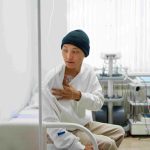
PRAYAGRAJ, India – Early diagnosis and the care of cancer remain significantly out of reach for people in low- to middle-income countries (LMICs) compared to those in high-income countries. This inequity in access may lead to the unnecessary suffering and loss of lives for millions, health experts warn.
Calling for the elimination of these disparities, political leaders, clinicians, cancer authorities, patient advocates, and researchers shared their insights at summit “Equity in action: driving progress in cancer care” in Prayagraj, India, on 20 and 21 February 2025. The summit, organised by the International Cancer Patient Coalition (ICPC), was held at the Sam Higginbottom University of Agriculture, Technology, and Sciences (SHUATS).

“The Asia-Pacific region is characterised by diverse healthcare infrastructures, economic conditions, and cancer burdens,” said Professor Dr Jonathan A. Lal, Pro-Vice Chancellor at SHUATS and a board member of ICPC. “While some countries have robust health systems to tackle cancer, many others struggle with limited access to early screening, diagnoses and financial barriers.”
Highlighting the Global Index on Equitable Cancer Care, the major disparities include early detection and screening; access to advanced treatments; the healthcare workforce; and out-of-pocket expenses, Prof. Dr Lal said. Examples include the unavailability or unaffordability of targeted therapies and immunotherapies in many LMICs, and the varied oncologist-to-patient ratio, from one oncologist for 3,000 people in Japan to one oncologist to 12,000 people in India. In Malaysia, the ratio is one oncologist to 220,000 people.

Apart from discussing the barriers and opportunities to address these gaps, the summit also led to the Asia-Pacific Declaration of Cooperation on Advancing Cancer Care Equity, endorsed by participants from the Asia-Pacific region.
“The Declaration calls for collective action – uniting governments, private entities, and patient organisations to align policies and share innovation on early detection, diagnosis, treatment, and care,” said Professor Dr Denis Horgan, Secretary General of ICPC and Executive Director of the European Alliance for Personalised Medicine.
The goals of the Declaration include:
· increasing early-stage detection by 15 percent by 2030;
· training 500 oncology professionals in telemedicine, palliative care, and AI-driven diagnostics by 2027; and
· launching the Asia-Pacific Translational Research Consortium to pilot precision medicine projects in four regional centres.
These goals should be achieved through regional collaboration, strengthened innovation and research, improved access through public-private partnerships and
sustainable financing mechanisms, empowered patient advocacy, and advanced policy commitments, said Prof. Horgan.
“ICPC will coordinate stakeholders, oversee the implementation, and monitor the progress of the Declaration,” he added.
i Tan SC, Poh WT, Yong AC, Chua EW, Ooi DJ, Mahmud R, Thiagarajan M, Stanslas J. Challenges and strategies for improving access to cancer drugs in Malaysia: Summary of opinions expressed at the 2nd MACR International Scientific Conference 2022. Cancer Management and Research. 2023 Dec 31:851-62.






